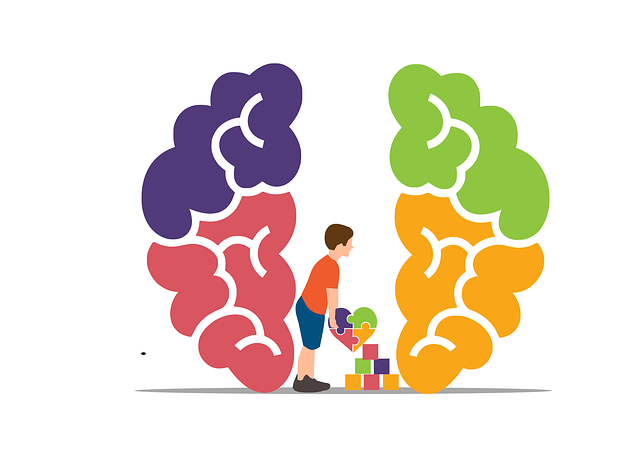Englewood Alcohol Abuse Therapy offers a holistic approach to mental wellness, combining evidence-based practices like cognitive behavioral therapy and mindfulness for effective treatment of both alcohol abuse and underlying mental health challenges. Their comprehensive evaluation methods include structured assessments and qualitative feedback to measure program success and tailor interventions. By integrating various quantitative and qualitative tools, they gain insights into participant progress, ensuring continuous improvement aligned with individual needs. Long-term tracking through follow-up surveys and interviews demonstrates their commitment to dynamic support systems facilitating lasting recovery, as shown by successful case studies.
Mental wellness programs are essential components of holistic healthcare, with Englewood Alcohol Abuse Therapy leading the way in innovative treatment approaches. This article explores effective evaluation methods for such programs, focusing on both short-term outcomes and long-term success. We delve into key strategies employed by organizations like Englewood, examining how their tailored therapy models impact patient lives. By understanding these evaluation techniques, healthcare professionals can ensure the quality and efficacy of mental wellness initiatives.
- Understanding Mental Wellness Programs: A Foundation for Evaluation
- Englewood Alcohol Abuse Therapy: An Overview of Their Approach
- Key Methods in Program Evaluation: Measuring Effectiveness and Impact
- Assessing Long-term Success and Continuous Improvement Strategies
Understanding Mental Wellness Programs: A Foundation for Evaluation

Mental wellness programs are designed to support individuals in various aspects of their mental health and well-being. These programs often include a range of evidence-based practices such as cognitive behavioral therapy, mindfulness techniques, and compassion cultivation practices aimed at enhancing resilience, improving self-esteem, and promoting stress reduction methods. At Englewood Alcohol Abuse Therapy, for instance, our comprehensive approach integrates these strategies to address not just specific issues but also the underlying causes contributing to mental health challenges.
Evaluation is a crucial step in understanding the effectiveness of such programs. It involves assessing progress, measuring outcomes, and gathering feedback from participants. By employing well-structured assessment tools and qualitative methods, we can gain valuable insights into the impact of these initiatives. This foundation allows us to tailor interventions, ensure continuous improvement, and foster sustainable mental wellness for individuals seeking support, be it for alcohol abuse issues or broader mental health concerns that may include low self-esteem and stress management difficulties.
Englewood Alcohol Abuse Therapy: An Overview of Their Approach

Englewood Alcohol Abuse Therapy offers a comprehensive approach to addressing alcohol abuse and addiction, focusing on both the physical and psychological aspects of recovery. Their program is meticulously designed to support individuals in overcoming their substance abuse issues while promoting emotional well-being promotion techniques and self-esteem improvement. Through individualized therapy sessions, clients engage in intensive counseling that targets the root causes of their addiction.
The therapy focuses on mental health awareness, helping participants develop coping strategies to manage cravings and triggers. By combining evidence-based practices with a supportive environment, Englewood Alcohol Abuse Therapy aims to empower individuals to lead sober, fulfilling lives. Their holistic approach considers not just the absence of alcohol but also the overall mental and emotional health of each client.
Key Methods in Program Evaluation: Measuring Effectiveness and Impact

Evaluating mental wellness programs is a multifaceted process that involves assessing various aspects to ensure their effectiveness and positive impact on participants’ lives. Key methods include both qualitative and quantitative approaches, tailored to measure different outcomes. One such method is the use of surveys and questionnaires designed to gauge changes in symptoms, attitudes, and behaviors before and after program involvement. For instance, evaluating the Englewood Alcohol Abuse Therapy program could involve pre- and post-intervention surveys to assess reductions in alcohol consumption and improvements in emotional well-being.
Additionally, interviews and focus groups offer valuable insights into participants’ experiences. These methods allow for deeper exploration of personal narratives, perceptions of support received, and the perceived utility of specific therapy techniques, such as empathy building strategies and emotional intelligence training. By combining these evaluation tools, mental health professionals can gain a comprehensive understanding of a program’s success in promoting positive mental wellness outcomes, ensuring continuous improvement aligned with participants’ needs.
Assessing Long-term Success and Continuous Improvement Strategies

Evaluating the long-term success of any mental wellness program is a critical step in understanding its overall effectiveness. This process involves assessing whether participants maintain their progress and benefits over an extended period. At Englewood Alcohol Abuse Therapy, we employ various methods to gauge this, including follow-up surveys, interviews, and participation rates in ongoing support groups. By tracking these metrics, we can identify trends and areas for improvement, ensuring the program adapts to evolving needs.
For continuous improvement, our strategies focus on incorporating evidence-based practices that promote positive thinking, coping skills development, and stress reduction methods. We analyze participant feedback and research the latest advancements in mental health care to refine our programs. This iterative approach allows us to enhance services, improve client outcomes, and provide a dynamic support system that fosters long-term recovery, as demonstrated through successful case studies.
Evaluating mental wellness programs is paramount to ensuring their effectiveness and fostering continuous improvement. By understanding the foundation of these programs, as discussed with an emphasis on Englewood Alcohol Abuse Therapy’s unique approach, we can employ key evaluation methods that measure both short-term impact and long-term success. This strategic navigation allows us to navigate the complex landscape of mental wellness support, ultimately revolutionizing care and enhancing lives.














